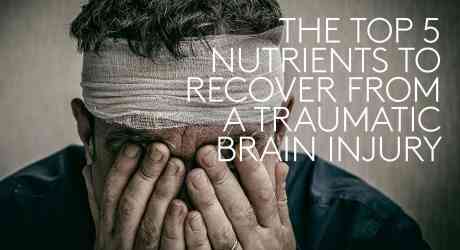5 Ways You're Losing Your Spark by Skimping on Sleep

“I’ll sleep when I’m dead
Got no time for catching z’s
If they say that that ain’t healthy
well then living’s a disease…
Gonna live while I’m alive
I’ll sleep when I’m dead”
Bon Jovi’s lyrics are an example of how many of us think today when it comes to sleep.
Sure, sleep does seem like a perfectly good waste of time when we could be doing just about anything more useful or exciting. Before Thomas Edison’s invention of light bulbs, humans could sleep for up to 14 hours a day. Now, living in the 21st century, we aim for a rare seven to eight hours of sleep, if we’re lucky. We extend our days in order to accomplish more and an alarmingly high rate of us experience disturbed sleep with over 70 sleep disorders that exist. Despite wanting to do more and be more in life, research shows that most people cannot survive, let alone thrive, on much less than eight hours sleep. While we attempt to make ourselves more efficient, we are actually becoming less efficient. And seriously hurting ourselves in the process.
Sleep affects everything as it is a restorative process of the brain, by the brain, and for the brain and is therefore important to the health of the entire body.
5 ways Sleep Dep is Dimming That Spark
1. It’s making you sick.
Psychoneuroimmunology (PNI), is the study of the interaction between your psyche, nervous and immune systems. With sleep deprivation, PNI shows us that communication between the brain and immune system gets mucky, and this leads to an increased risk of infectious diseases as well as chronic illnesses like heart disease, cancer and depression. Sleep is increasingly becoming recognized as the restorative process, essential for proper functioning of the immune system. So it makes sense, that with impaired sleep you create lowered immunity. This makes it A) difficult for your body to properly recover from infection, B) increases your risk of getting sick more often, and C) increases your risk for worse illnesses. When you find yourself sick or run down, sleep is usually the best medicine!
Tip: It’s that deepest stage of sleep that really helps boost your immune system – make sure you sleep long enough to hit this stage.
Sleep is increasingly becoming recognized as the restorative process, essential for proper functioning of the immune system.
2. It contributes to weight gain.
Not getting enough sleep does more damage than just leaving you with puffy eyes and dark bags! Sleep is needed to regenerate the body (especially the brain) so that it can function optimally and not go downhill. There’s a decade worth of research that links habitual sleep deprivation and circadian desynchrony (aka. an imbalance in your body's daily rhythm) to conditions like weight gain, obesity, diabetes and hypertension. The effects of sleep deprivation on weight gain are vast, and include:
- Altering how your body processes sugar
- Reducing your ability to burn calories
- Increasing cortisol, your stress hormone
- Losing the ability to tell if you’re hungry or full
In short: sleep deprivation is a recipe for disaster where your weight is concerned. What’s more, when short on sleep you gain visceral weight, aka. stubborn belly fat! This type of weight gain spells double-trouble, as visceral fat stores around vital internal organs can provoke inflammation and it is linked to heart disease, type 2 diabetes, strokes, mental illness and other chronic diseases.
3. It’s costing you.
65% of workers report health-related lost productivity at work due to fatigue. This alarming statistic translates into an astonishing $136.4 billion lost annually for employers. When you’re functioning on poor sleep:
- You will have slowed thinking, impaired memory, and loss of concentration
- You can lose the ability to make sound decisions, and often need to repeat a task or work more slowly
- You are more exposed to accidents, mistakes and injuries both on and off the job
And for you Employers? This in turn is costing you extra time and money. One study showed that annual estimated cost of employee productivity loss due to insufficient sleep reached $54 million among the companies surveyed. The cost is shocking and while workers extend their days in order to be “more” productive, many are sacrificing the quality of their performance—and their health and safety.
The annual estimated cost of employee productivity loss due to insufficient sleep reached $54 million.
4. It's breaking your heart.
Sleep is key for a healthy heart! Without long, deep periods of rest, certain chemicals are activated that prevent the body from getting into a groove where heart rate and blood pressure are nice and low. Sleep deprivation, specifically, increases the progression of cardiovascular disease by altering blood pressure, certain hormones and inflammation. Interestingly, inflammation (how the body responds to injury, infection or disease) plays an important role in why poor sleep affects the cardiovascular system. Poor sleep also causes the body to produce more stress hormones, which jacks your pulse, heart rate and blood pressure to make your heart work overtime.
5. It’s making you crazy.
Have you ever wanted to test the true importance sleep has on your brain and mental health? Well, Randy Gardner did and he holds the record for the longest ever scientifically documented intentional period without sleep. He managed to stay awake for 11 days and 24 minutes to prove that sleep deprivation isn't that bad for you. Boy, did he get a wake up call! Randy suffered paranoia, hallucinations, moodiness and a variety of psychological problems. Sleep is a time for the brain to process information, consolidate memories, clear toxins and play neuro-janitor. Without adequate sleep time, deprived brains have to work extra hard which can result in higher stress susceptibility and increased risk of neurodegenerative disease and stress-related mental disorders. A good night’s sleep will help encourage both mental and emotional resilience.
5 ways to ‘NeuroTrition’ your way to sleep
There are many important sleep hygiene habits that can help you get a good night's rest. Here, at NeuroTrition, we apply our unique foodie-meets-brain scientist approach to building happy, healthy brains.
Eat your way to improve sleep while boosting brain health:
1. Ditch the stimulants.
Caffeinated drinks such as coffee and stimulant drugs such as diet pills and decongestants spark some parts of the brain and can cause insomnia. Many people who suffer from insomnia use alcohol, the so-called night cap, to try and solve the problem. While you may fall into a light sleep when you drink alcohol, you are actually robbed of the deeper, more restorative stages of sleep.
2. Cut the sugar.
First comes stress, then comes cravings. When under stress, your adrenals go shopping for energy which will generate insatiable cravings for sweets. You eat the sweets, your blood sugar spikes, which means less sleep – it's a vicious cycle. Do your best to steer clear of high sugar, processed food and drinks. Sound impossible? You’ll get there. Help yourself get off this stuff by making a point of always adding a good fat or protein to sweet, high carb or processed foods.
3. Nix Those Food Allergies.
Sleepless nights and daytime exhaustion takes its toll on your wellbeing. A food allergy is the immune system’s response to the proteins in certain foods. Even though an allergy will often show up in the form of gut distress, researchers have found gut distress can be hidden, in some cases, and insomnia might be the only clue. Cut out common allergens through an elimination diet to see if sleep improves.
4. Increase sleep friendly nutrients.
- Vitamin C: An antioxidant found abundantly in citrus fruits and vegetables such as broccoli, kale, and sweet peppers. It cuts down on your risk of heart disease, cancer, and other diseases associated with poor sleep and lowered immunity.
- Selenium: Antioxidant found in fish and seafood, meat, Brazil nuts, and sunflower seeds. Lowers your risk of heart disease and some cancers and has a key role in reducing inflammation and building compromised immunity.
- Magnesium: A lack of this essential nutrient can play a role in insomnia. Green leafy vegetables, and nuts & seeds are good sources to avoid deficiency.
5. Eat regularly.
Blood sugar control regulates the entire body’s inflammatory response, including the brain’s. Don’t skip meals! Eat every two to four hours so blood sugar and insulin don’t fall into a tail spin. The more balanced your blood sugar is during the day, the better you will sleep at night. If there are extreme peaks and valleys during the day due to higher-carb/sugar foods, or long hours without eating at all, then you are more likely to wake at night.
Improve your sleep and you’ll improve your life. Treat your body to the greatest body- and brain-boosting treatment there is! Happy snoozing!
- References
-
- Aya, N.T., White, D.P., Manson, J.E., Stampfer, M.J., Speizer, F.E., Malhotra, A., & Hu, F.B. (2003). A Prospective Study of Sleep Duration and Coronary Heart Disease in Women. JAMA Internal Medicine, 163(2): 205-209
- Irwin M.R. (2015). Why sleep is important for health: a psychoneuroimmunology perspective. Annual Review of Psychology, 66:143-172.
- Motivala S.J. (2011). Sleep and inflammation: psychoneuroimmunology in the context of cardiovascular disease. Annals of Behavioral Medicine, 42(2):141-152.
- Mullington, J.M., Haack, M, Toth, M., Serrador, J., & Meier-Ewert, H. (2009). Cardiovascular, Inflammatory and Metabolic Consequences of Sleep Deprivation. Progress in Cardiovascular Diseases, 51(4): 294–302.
- Tobaldini E., Pecis M., & Montano N. (2014). Effects of acute and chronic sleep deprivation on cardiovascular regulation. Archives Italiennes de Biologie, 52(2-3):103-110.








